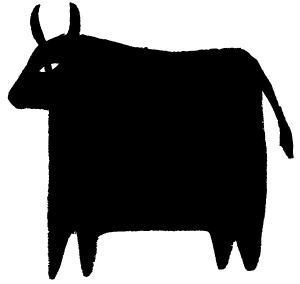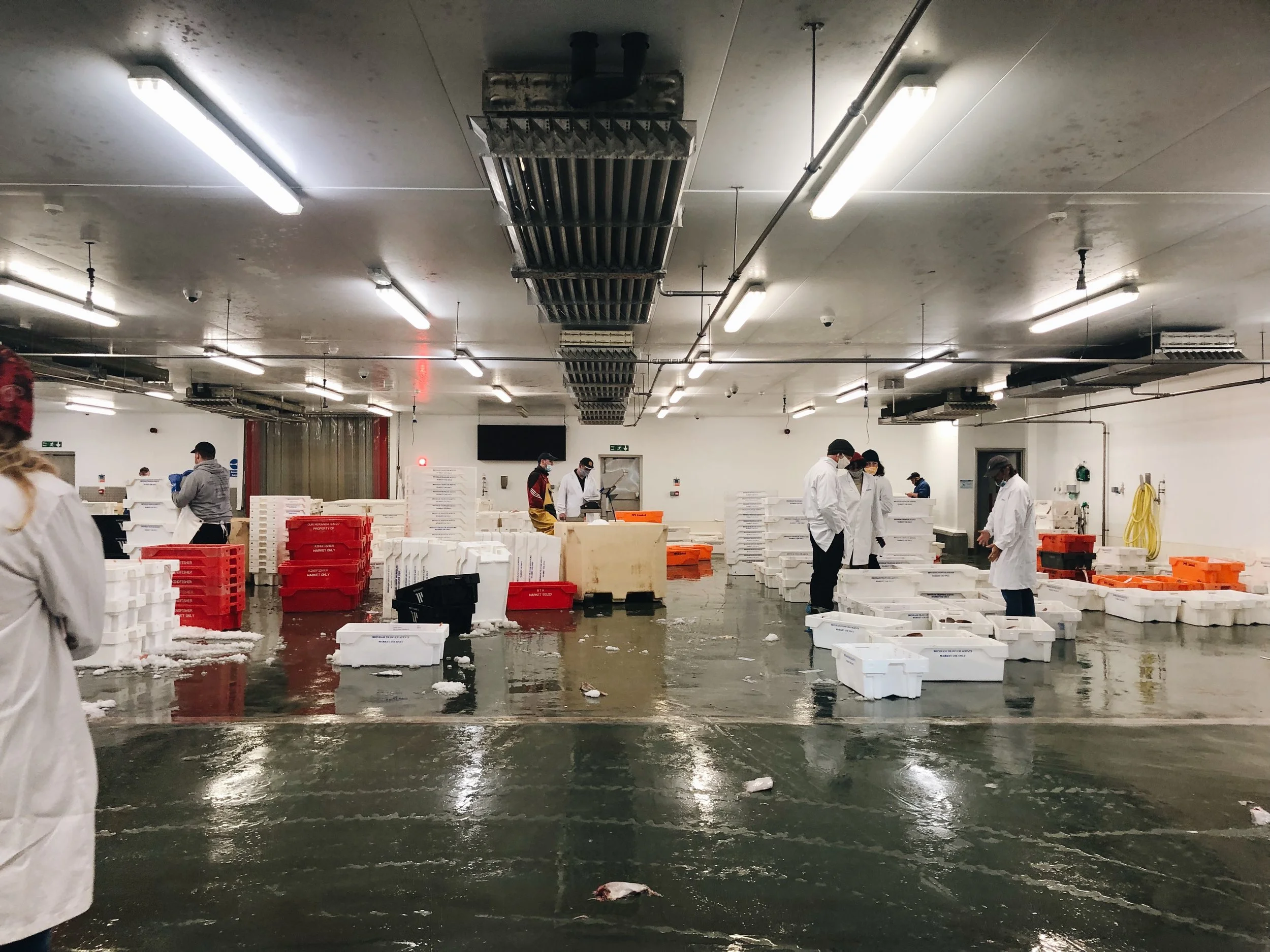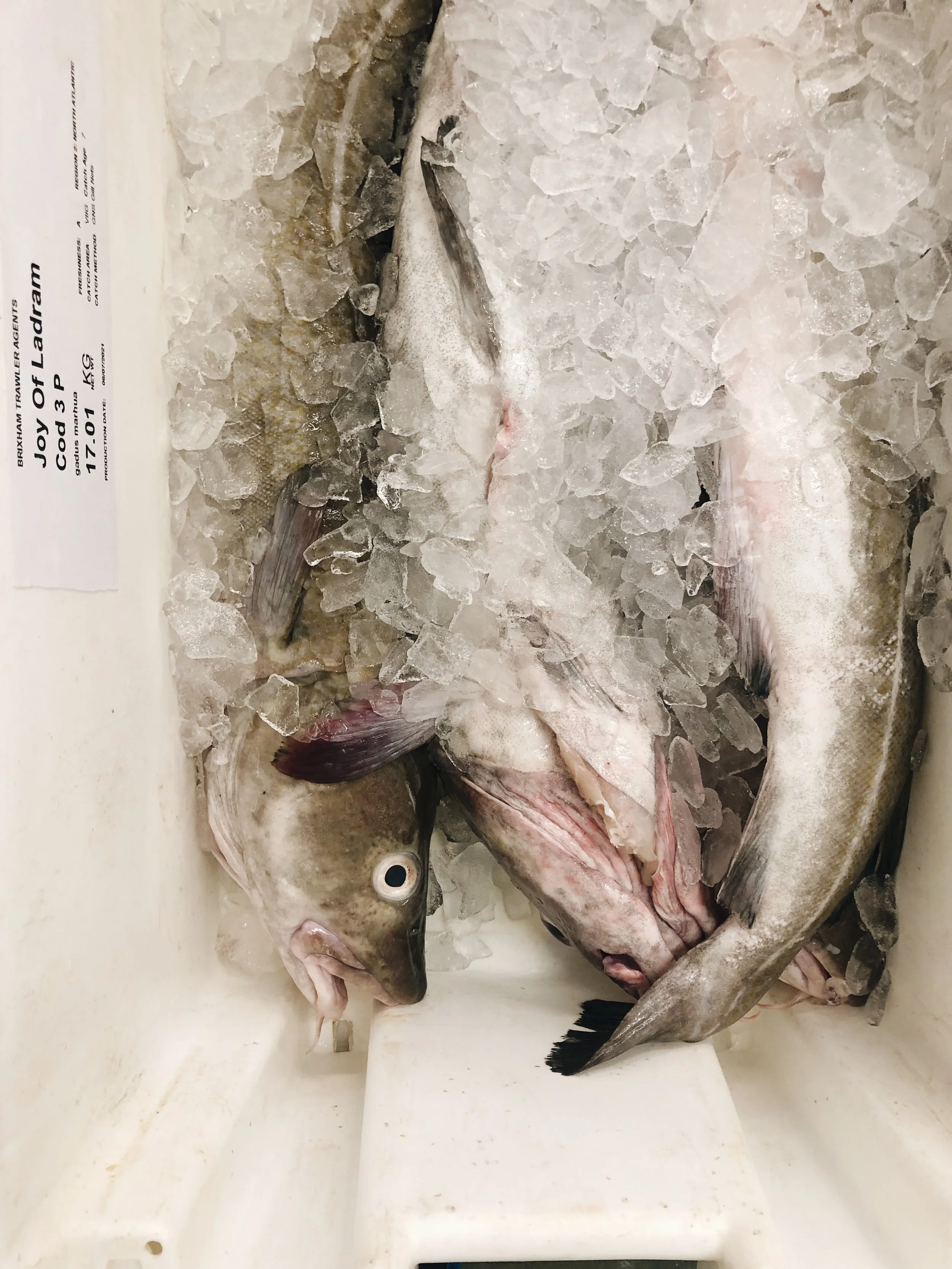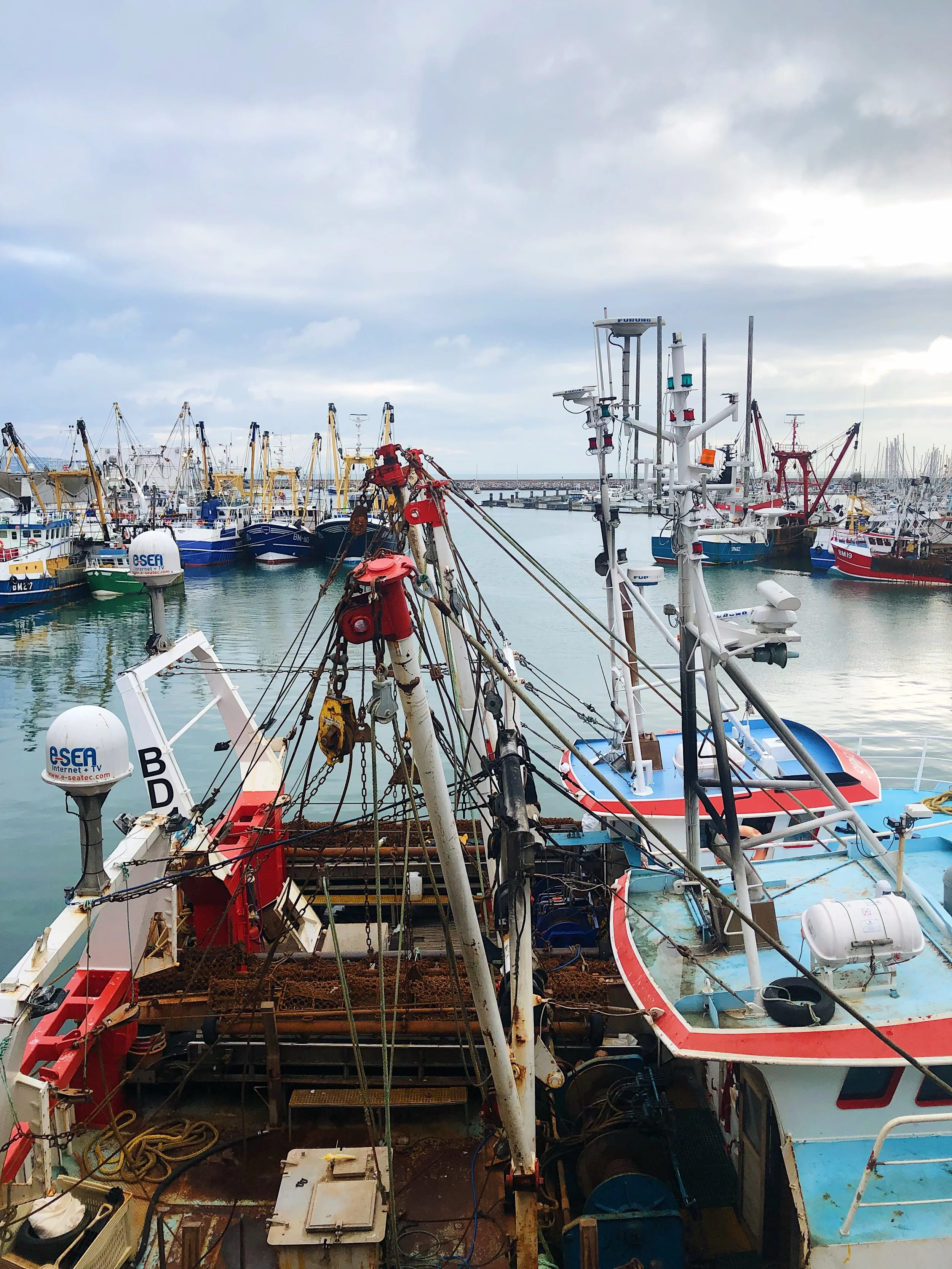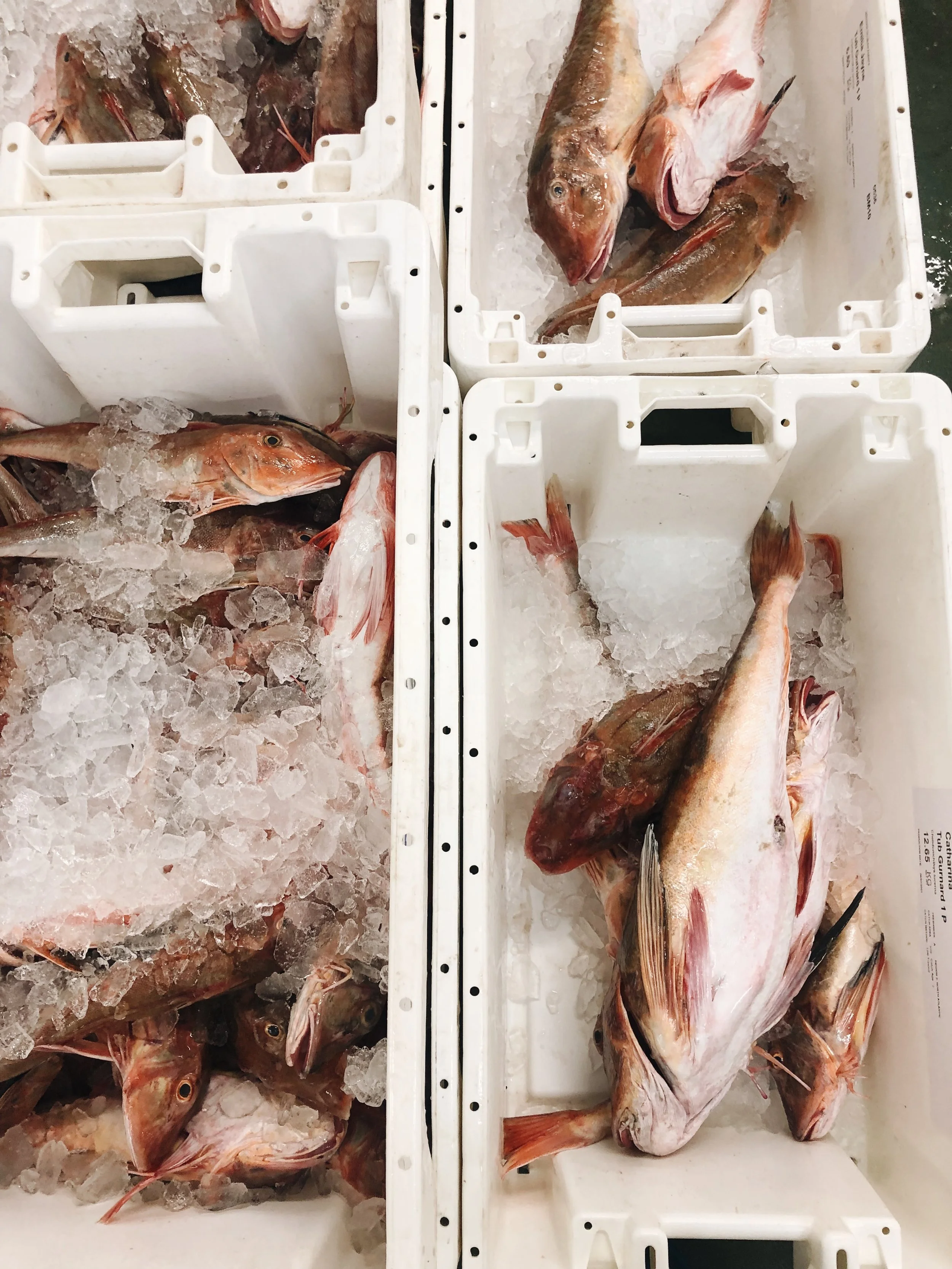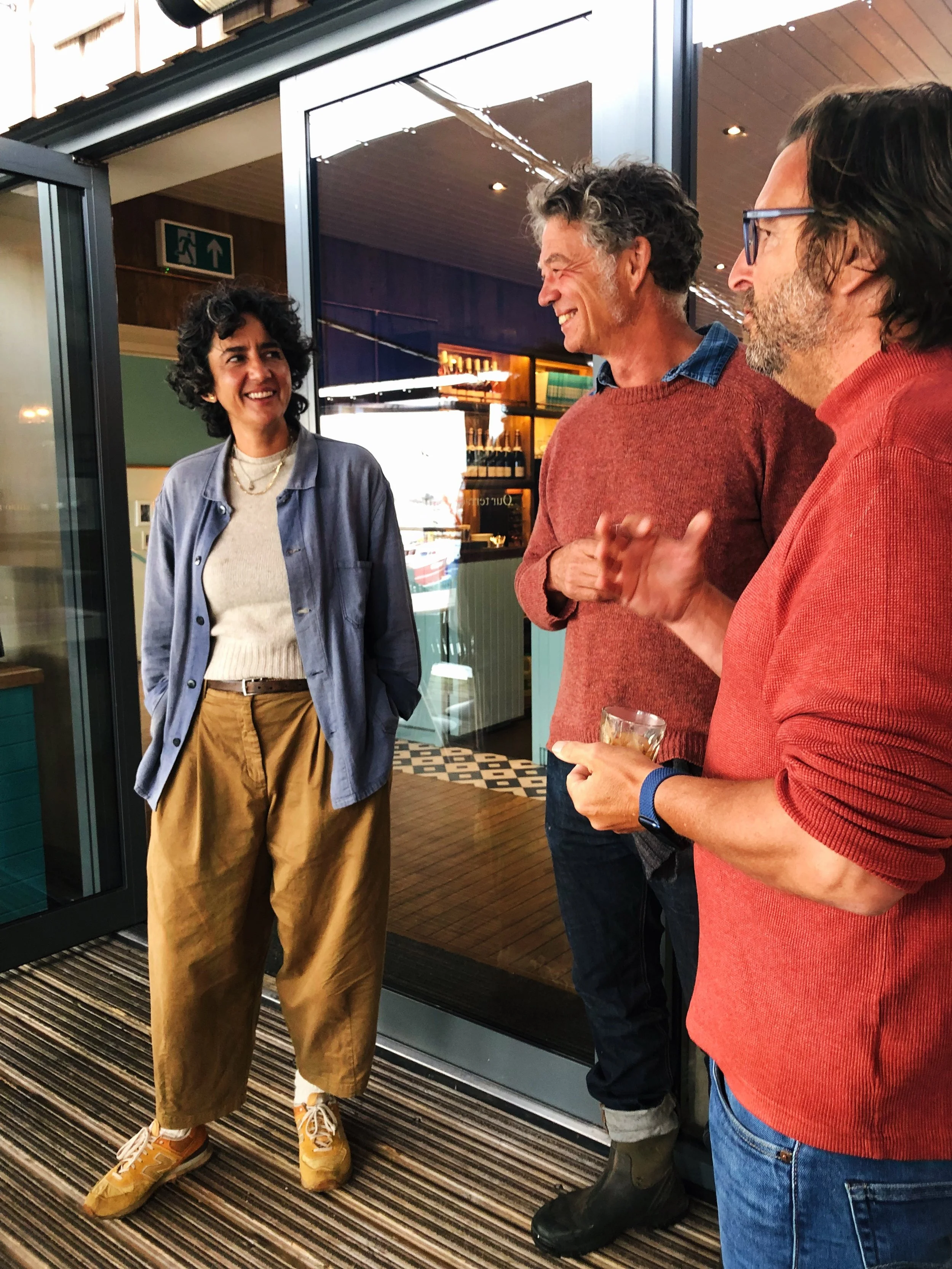BRIXHAM FISH MARKET
Some of our team got the fab chance to visit Brixham fish market in the early hours of the morning with the wonderful Mitch Tonks from Rockfish and The Seahorse. Honestly, the team were so generous and a big thank you for being so welcoming and showing us the workings of Rockfish! We loved every moment!
Seeing the fishing industry in the real world was all we needed to remind ourselves of how vital our own No Bull Rules are and drive our research further into the world of radically ethical fishing – especially with exciting plans on the horizon …
Watching the trawlers come into one of the largest fishing harbours in the UK, one of the biggest shocks for us was the small amount of non-trawled catch compared to the more destructive trawler boats. Beam trawlers cause extensive damage to the sea-bed, decimating the ocean bottom and in the process, this releases carbon into the atmosphere, similarly to plowing land, as well as constantly depositing plastic in the sea with sacrificial nets - meaning tragically unsustainable in terms of plastic damage too!
Geetie had a few comments from the trip on the fishing industry too :
“Many restaurants offer “day boat catch” and most people would assume that is therefore fine. Day boats are not by definition innocent, beam trawlers can be day boats. Despite greenwash being a standard complacent behaviour of restaurants, I am prepared to defend them in this case, as chefs actually getting their hands on fish caught by minimally damaging methods is near on impossible! There are NO wholesalers who can provide the details on exactly where, when and how it was caught. Believe me, I have tried for 30 years to pin them down! This is because traceability gets lost very quickly from landing to purchase. The only way to be certain, is to buy directly off a known fisher who you trust. But this is a completely unrealistic and infuriating option, on which the governments, past and present, have let us down through lack of legislation and traceability. Fishing sustainably, like farming sustainably, is a quagmire of inaccuracies and complexities.
How do we know what to ask and who to trust? There are no certifying bodies that fulfil the requirements, and trading standards, a government body who was there to fact check the claims companies made, are barely funded anymore. Back in the late 90’s, when I opened my first organic pub in London, they used to visit and ask questions about any claims we made. The red tape has been cut, and now it’s a free for all, relying on citizens to challenge with little knowledge and understanding (the market will manage, this government likes to tell us). But the market had created the very problem that has destroyed our oceans. Fishing needs legislation. The fish market possibly more than any other.
We are taking matters into our own hands at TPot Ltd (The Principles Of Trade) by taking on another project, as well as The Bull, The Albatross. We will be selling a lot of farmed mussels, along with line caught fish, we will freeze when there are gluts (as day boats can’t go out when there are storms, which in itself gives the fish a break!) We will serve deep fried, organic veg, along with other treats too.”
Looking at the fishing industry highlighted the importance for being completely supplier-led by working directly with fishers whose methods you know and trust. Our No-Bull Rule to Trade By No. 2 - Be rigorous in your procurement!
We are INCREDIBLY lucky to use sustainable suppliers such as Kernow Sashimi and Sole of Discretion who focus on the importance of using radically ethical methods, such as landing all they catch, including by-catch, line caught methods and focusing on seasonality and stock levels. Without marine reserves, (areas left untouched by fishing -30% of the ocean is thought to be sufficient to give us abundant stocks) populating the ocean from these safe breading grounds, we believe the future of fish is in local mussel farming. This creates marine reserves while mussels clean the sea and capture carbon in addition to using bycatch so nothing is wasted! There's many ways to find new methods to innovate the industry, like developing ways to use the whole fish, sustainable ways to cure fish and reimagine tinned fish as an ingredient in dishes were discussed with Mitch and his lovely team. As with all food, if we rethink food waste, we tackle the vast majority of our ‘feed the world’ issues.
Looking forwards, we will be exploring these issues a lot more as we EXPAND our ethical fish sourcing, perhaps you should scroll down to read a bit more into our new project, The Albatross (yes, we now own a lovely, local fish bar! Woo!) Keep your eyes peeled for more to come!
If you also want to read a little more into this topic … Good Catch was created for this purpose 10 years ago, has some interesting info, but hasn’t been updated for a while.
